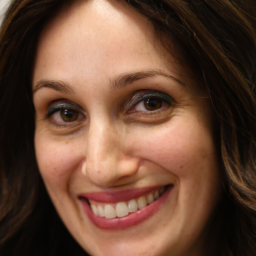Restoring Our Sense of Agency with the Return of School
The exuberance that each new school year brings for the children we greet through our doors is palpable throughout the school in the weeks leading up to September. But now, with so much uncertainty surrounding us, we are left wondering just how we’ll recreate that communal buzz of excitement and cozy school vibe through our sterile masks and socially distanced hallways. How will our educators and students re-enter a building they have not inhabited for close to half-a-year, and resume school life as they know it? How will our educators weave their magic and ease back-to-school tension and worries, restoring calm and reviving the smiles and laughter that we all miss? How will we partner with our parents to ensure that we are all working together and placing the social and emotional wellbeing of everyone within our educational communities, front and center of everything we do?
How I wish I could answer those questions, and foresee the future. We are all navigating unchartered waters, and in the absence of certainty, we are charged with the task of an abundance of planning, with an eye toward sensitivity and caution. Administrators and educators are working round the clock to ensure a healthy transition back to school and are at the center of efforts to restore the conditions for all of us to thrive and flourish this year. But in order to do so, we must reclaim our role as those who create the conditions, and don’t just respond to them.
Agency
There’s a strong premise within positive psychology that when individuals have the psychological state of agency, progress occurs, but when they don’t, they face stagnation. Agency is a subjective, internal state of mind whereby individuals feel as though they can make a positive difference in the world around them. Agency is comprised of a sense of efficacy, which is a cognitive belief of one’s ability to exercise control, as well as optimism, the expectation of a positive future.
COVID-19 has challenged not only our efficacy and optimism, but our core understandings of our place in the world around us. Thankfully, belief and conviction in our sense of agency throughout our school communities is embedded within Jewish education from the youngest of ages. It begins with the daily prayer of Modeh Ani, where, in the words of the late Rabbi Menachem Mendel Schneerson, we teach our children to “begin your day thanking G-d; if not from faith in Him, then at least from His faith in you,” to be a productive and a positive force for yourself and those around you. The sense of agency that is central to the mission and vision of our schools fosters resilience and innovation, and allows us to try harder, dream bigger and brighter, imagining things other than the here and now.
Make no mistake: we are all going to need to take an inside-out approach this year, as we engage in collective healing and social-emotional learning and join forces to cultivate inclusive and welcoming classrooms. We often think of ourselves as thinking creatures that feel, but really biologically, we are feeling creatures that think. We know that our emotions affect our ability to store, process and absorb information, as learning is a deeply emotional process that calls on areas of the brain that intertwine cognition and emotion-processing, particularly the prefrontal cortex. Positive emotions enrich our cognitive functioning in areas such as brainstorming, problem-solving, memory, creativity and lateral thinking. We know that no learning happens when our students are highly emotionally aroused, and we’re going to need to attend to their social-emotional needs so that they will be available for learning.
Resilience
As we return, our approach must remain relationship-focused, student-centered and restorative in order to breathe new life into our classrooms, fueled by courage, compassion and connection. The data speaks for itself: strong subjective wellbeing has been linked to enhanced health, immunity, better social relationships, productivity and resilience, and the best news is that wellness can be taught and character strengths can be developed.
Resilience is a dynamic process that takes into account the complex and changing contextual interactions between individuals and their surrounding environment, including family, community and social systems, that influence one’s capacity to overcome adversity. Resilience is more than coping with difficulties; rather, it enables people to adapt and regain an ability to flourish, with room for positive growth, transformation and transcendence.
Reconfiguring the Fragments
There’s a famous parable in the literature of trauma. Imagine you had a precious vase that you were gifted from a close relative that gets knocked on the floor and smashes into a myriad of tiny pieces. Panicked, you bend down and try to gather all the fragments so you can piece it all back together. You try and try, but shaping it into what it once was proves to be too arduous a task. Perhaps you can assemble the pieces into something new, and repurpose them to help you creatively process and preserve your memories.
As educators, our task today is not to put back the pieces to what they once were. I believe that our task is to welcome everyone back into our sanctuaries of learning and empower each other to reconfigure our pieces and imbue our experiences with meaning, as we incorporate them into a renewed and enhanced version of ourselves. As Holocaust survivor and Austrian psychiatrist Dr. Viktor Frankl wrote, “When we are no longer able to change a situation, we are challenged to change ourselves.” Let’s revive the sense of agency and human connection within our schools and pave the way for the powers of possibility this year.
Carly Namdar is an educational psychologist and director of middle school guidance at HALB. Carly is a doctoral candidate at the Azrieli Graduate School of Education, and is passionate about all things positive-psychology related.



